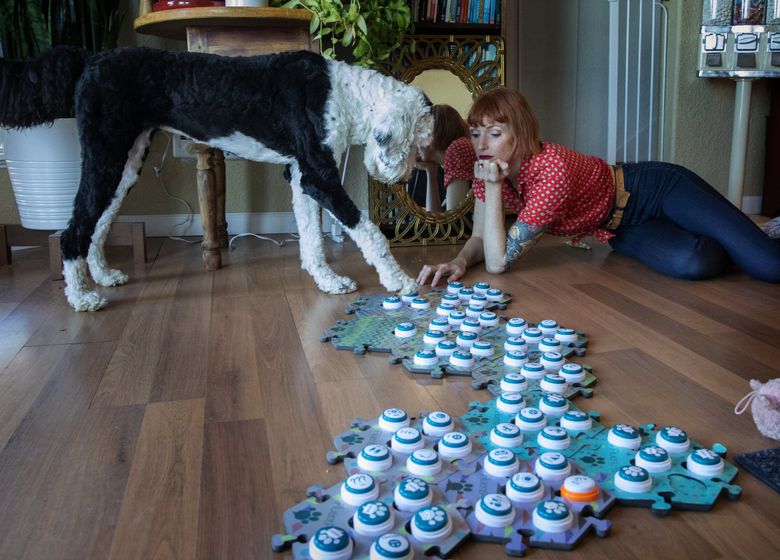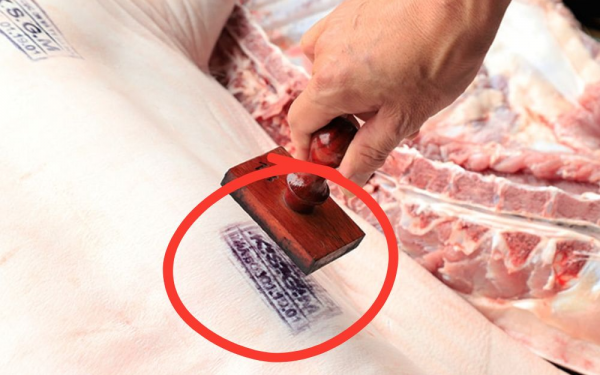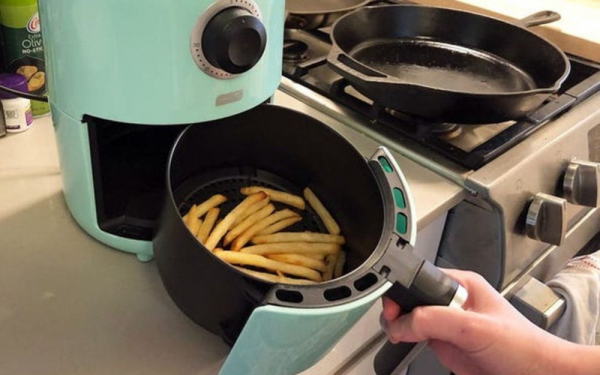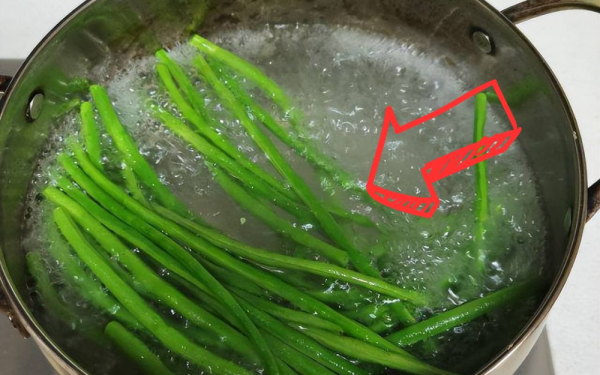Watch Bunny the Sheepadoodle Talk to Her Owners
Spend one minute on @what_about_bunny’s TikTok or Instagram accounts, and you’ll realize that this sheepadoodle is far from a typical dog. At only 1 year old, Bunny uses a system of sound-emitting buttons to communicate more than 70 words to her owner.
Alexis Devine gave Bunny her first button at 8 weeks old, and she regularly posts videos of their “conversations” to social media. Bunny already has 5.3 million followers on TikTok and 505,000 followers on Instagram.
“My goal before I got her was to have the most connected relationship possible,” Devine says in an Instagram video.
Devine was inspired by Christina Hunger, a speech language pathologist who started teaching her Catahoula-Australian cattle dog mix Stella how to talk using buttons in 2018. Hunger created an augmentative and alternative communication (AAC) device that enables Stella to communicate and expand her vocabulary. Hunger posts regular videos and updates to Instagram and hungerforwords.com.
How Bunny Learned to Talk Using Buttons
Devine talked to Bunny from the moment she brought her home. “It’s really important that your learner is used to hearing you speak a lot, especially the key words,” she says in the video. Before jumping into button training, she also encourages dog owners to gain an understanding of their dog’s body language.
Like Hunger, Devine started by training Bunny to speak by pressing a single button. Bunny’s first word was “outside.” Devine programmed an answer buzzer with the sound of her saying “outside” and placed the button by the door.
“Every time we would go outside, I would say the word ‘outside,’ I would press the button, and we would go outside together,” Devine says. They repeated that process hundreds of times for three weeks until Bunny was consistently using it on her own.
Devine has used this modeling technique (buttons→voice→activity) to add more and more words to Bunny’s vocabulary.
As Bunny started getting more buttons and learning more words, Devine situated the buttons on a piece of plywood. However, this design made accessing all of the buttons difficult as more rows were added.
Devine moved Bunny’s buttons onto hexagonal tiles a few months ago which was a difficult but ultimately helpful transition. Devine organized the buttons according to the Fitzgerald Key, a system that color codes or categorizes parts of speech. According to the video, she “hopes that it would speed up her learning and help her communicate more effectively.”

With repeated modeling and practice Bunny was able to learn the new system in only two weeks. “She’s more communicative, she’s able to access all of the buttons easily, and her syntax is seemingly improving—which is wild to say about a dog,” Devine says.
Devine and Bunny teamed up with Leo Trottier, a cognitive scientist and founder of CleverPet, to test the new FluentPet canine AAC device being developed.
FluentPet was also initially inspired by Hunger’s work with Stella, and Devine received her board as a beta tester. Owners can now purchase starter kits that include sound buttons, HexTiles, label stickers, and a quickstart guide.
Understanding Canine Communication
Devine receives a lot of skepticism in response to videos of Bunny on social media. However, she tries to remain objective and Bunny is currently participating in research that will hopefully further explain what is going on when Bunny uses her buttons.
Trottier started How.TheyCanTalk.Org in collaboration with Devine, a group of canine AAC test pilots, and the Comparative Cognition Laboratory at UC San Diego. The research project includes three phases: initial data collection, video collection and analysis, and interactive studies. Devine regularly sends videos of Bunny in to the researchers for analysis.

Regardless of the results of the study, it’s clear that Devine and Bunny have a special connection. We can’t get enough of the videos of Bunny pressing the “mom” and “love you” buttons together.
















